Facts about Bulgaria
Bulgaria is a country in Southeastern Europe. Sofia is the capital of Bulgaria. The official language of the country is Bulgarian. Similarly, Lev is the national currency and Republika Bulgaria is the national name of Bulgaria. Furthermore, Mila Rodino is the national anthem of the country and the Danube is the principal river of the country. Additionally, the rose is the national flower, and Granit Oak is the national tree of Bulgaria. Also, the lion is the national animal of the country. Bulgaria is a land of mountains, hiking trails, ski resorts for winter, and beach resorts on the Black sea. It is the country for a blend of western and eastern cultures. With these interesting facts about Bulgaria, let's learn more about the history, culture, religion, people, industries, tourism, tradition, and many more.
Quick Facts Bulgaria
The official name of Bulgaria: The Republic of Bulgaria
Area: 110,993.6 square km
Population(2021): 6.87 million
Population density: 63 Square kilometers
GDP (PPP)(2020): $174.998 Billion
GDP Per Capita (nominal): $25,471
Continent: Southeast Europe
Capital: Sofia
Language: Bulgarian, Turkish, Romani
Official Languages: Bulgarian
Largest by area: 103rd largest country
Religion: Christianity: 61.1% (Bulgarian Orthodoxy: 59.5%, Other Christian: 1.6%), No religion: 9.3%, Islam: 7.9%, Other: 0.3%, Unspecified: 21.5%
Government: Unitary Parliamentary Republic
Currency: Lev (BGN)
Time Zone: Summer (DST)UTC+3 (EEST), UTC+2 (EET)
27 Interesting Facts about Bulgaria
1. Bulgaria shares its Border with
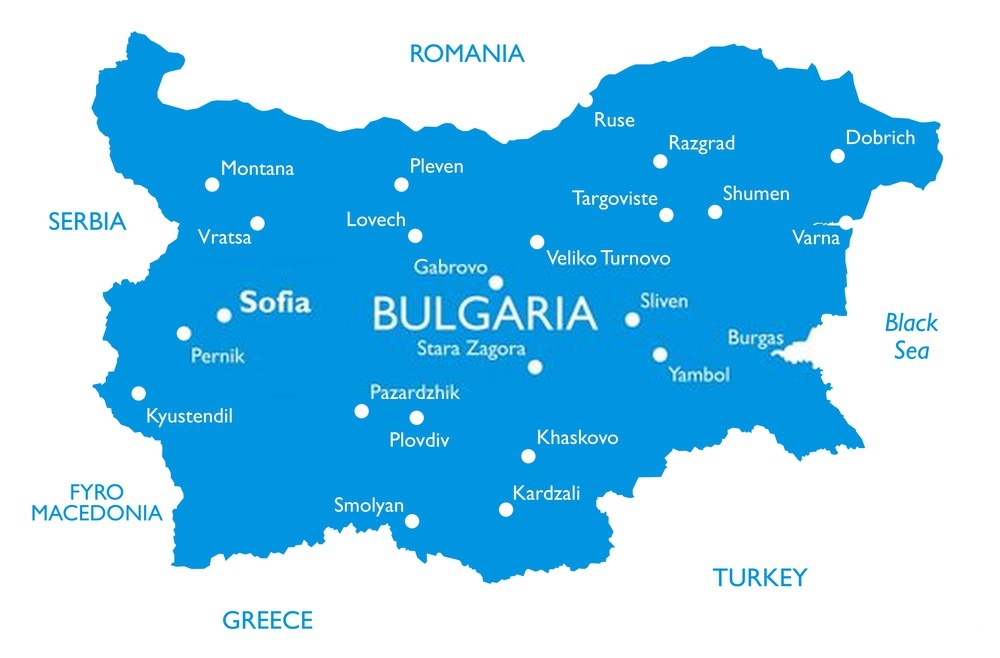 Bulgaria has five bordering countries. Romania to the north, Serbia, and the Republic of Macedonia from the west. Greece, and Turkey to the south.
Bulgaria has five bordering countries. Romania to the north, Serbia, and the Republic of Macedonia from the west. Greece, and Turkey to the south.
Also, the Black sea to the east.
2. Forests are everywhere in Bulgaria
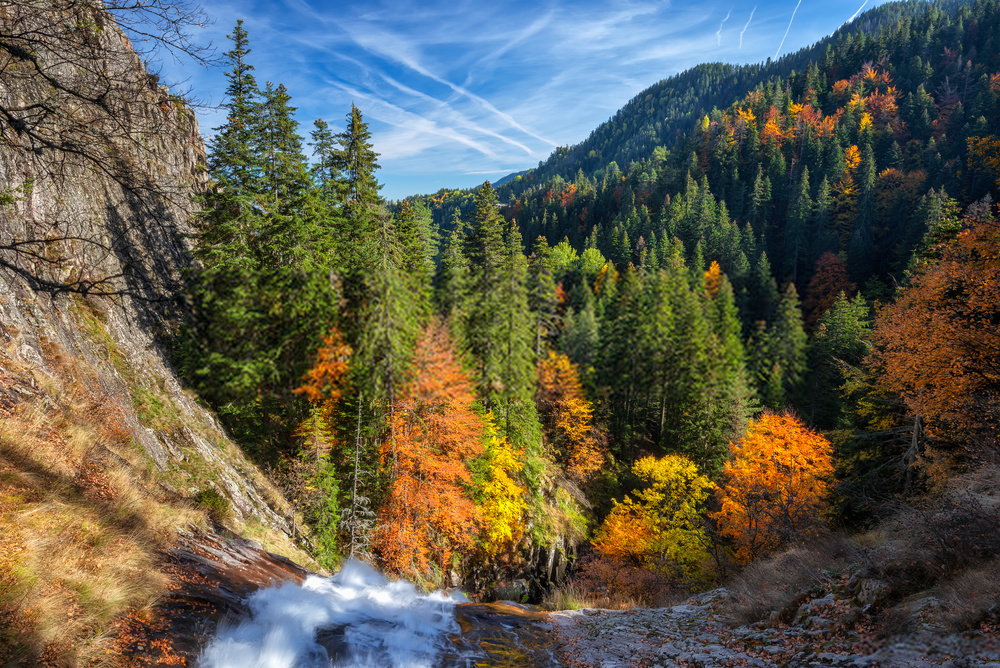 Bulgaria is very much rich in forests. One-third of its land is covered by forest. Similarly, the country has 40 mountains.
Bulgaria is very much rich in forests. One-third of its land is covered by forest. Similarly, the country has 40 mountains.
3. A very long history of human activity
Bulgaria has a very long history. Human activity in this country was present during the Paleolithic era. Different animals bones were found in the Kozarnika Cave. These bones were used by the ancient people for their hunting. These are assumed to be some of the earliest examples of human symbolic behavior. Furthermore, the Vinca, Hamangia, Varna cultures were all prehistoric societies organized and living in Bulgarian lands.
4. First gold smelters are from a Bulgaria
The varna invented gold working and was some of the first gold smelters. They produce jewelry, coins, and many more weapons. These are all found among the 290 graves of Varna group peoples. These historical things are now known as the Varna Necropolis treasure. The treasure found in the graves are over 6,000 years old and one of the oldest treasures in the world. Similarly, this indicates the human first gold smelters are from Bulgaria.
5. Oldest countries in Europe
 Bulgaria is one of the oldest countries in Europe and, it was a long history. It was in Europe from the pre-dates the roman empire. This country was founded in the 7th century. Furthermore, Bulgaria is also a popular trade point for eastern and northern Europe to the Mediterranean Basin. Similarly, it is also a popular trade point for central and western Europe to the middle east.
Bulgaria is one of the oldest countries in Europe and, it was a long history. It was in Europe from the pre-dates the roman empire. This country was founded in the 7th century. Furthermore, Bulgaria is also a popular trade point for eastern and northern Europe to the Mediterranean Basin. Similarly, it is also a popular trade point for central and western Europe to the middle east.
People and trade goods from Rome, Greece, and Byzantium often traveled through Bulgaria throughout its history.
6. The second oldest city of Bulgaria
The city of Plovdiv is a second older city of Bulgaria. It is older than Athens. The settlement began in this city is from 4000 BC. Similarly, this city is also ranked in the world's oldest cities.
7. Cyrillic alphabet was adopted by Bulgaria
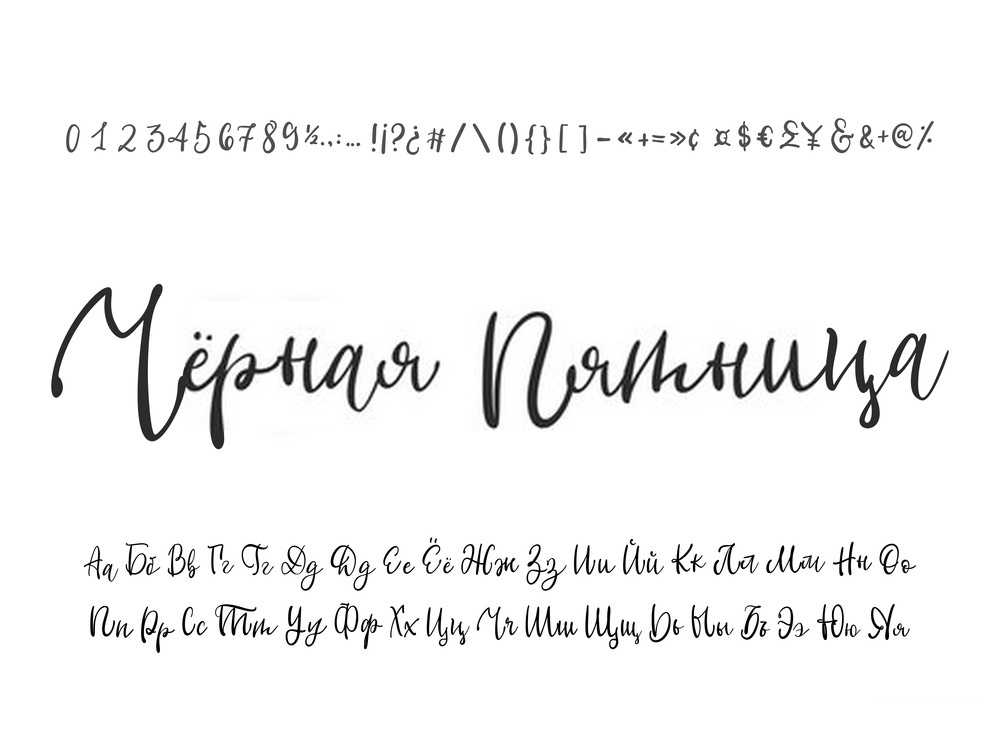 Bulgaria is the place from where the Cyrillic alphabet was adopted and ended with Paganism. The alphabet is used by its citizen to read and write. The country was first to use the Cyrillic alphabet in the 9th century. It's named after the Byzantine brothers Cyril and Methodius who invented the basics of the Alphabet.
Bulgaria is the place from where the Cyrillic alphabet was adopted and ended with Paganism. The alphabet is used by its citizen to read and write. The country was first to use the Cyrillic alphabet in the 9th century. It's named after the Byzantine brothers Cyril and Methodius who invented the basics of the Alphabet.
8. Separated by the waves
For 1600 years there was no bridge over the Danube between Romania and Bulgaria. In 1954, the friendship bridge was built by the Soviets. Before that, the Romans were the last to connect the two countries.
9. Bulgaria was once a communist country
Bulgaria was once a communist country. From the late 1980s to the early 1990s the country was under communism and during this period the country faced difficulties.
10. Member of the different International organizations
Bulgaria is a member of different international organizations such as the European Union, The Council of Europe, and NATO. Similarly, Bulgaria is the founding state member of the Organization for Security and Co-operation in Europe (OSCE). Furthermore, the country has also three times taken a seat at the UN Security Council.
11. The country whose name has not changed from its original establishment
Bulgaria is the only country in Europe Whose name has not changed since the original establishment of the country (in 681 AD).
12. Name days celebration is popular in Bulgaria
The name days or Saint days are celebrated by people named after a particular Saint. And the name days are valued more than a birthday.
13. The official language of Bulgaria
The official language of Bulgaria is Bulgarian. Bulgarian language is the oldest written Slavic language and is written in the Cyrillic alphabet. People of all ethnicities speak the Bulgarian language either as a first language or as a second language.
14. Bulgaria has no official state religion
There is no official state religion in Bulgaria. People of Bulgaria have freedom of religion. The majority of people in Bulgaria are members of orthodox Christianity. Similarly, Muslims, Christians, Jews, and Gregorian Armenians are the religion that follows the minorities of people in Bulgaria.
15. High national literacy rate
Bulgaria has a high national literacy rate. It is estimated at over 98 percent of people in Peoples are literate. The state provides education for all children in Primary (1-8) and the public school provides education of secondary level (9-12). Furthermore, high school students study for a general, vocational, technical, or specialized discipline education before entering higher education.
16. Bulgarian Yogurt is the best in the world
 Yogurt is the national food of Bulgaria. Similarly, Bulgarian yogurt is the most popular variety of Yogurt in the world because of its delicious taste and thick creamy. Bulgarian yogurt is produced through the bacterial fermentation of milk. Lactobacillus Bulgaricus is only found naturally in Bulgarian air and is said that this Lactobacillus Bulgaricus gives an amazing taste to the yogurt.
Yogurt is the national food of Bulgaria. Similarly, Bulgarian yogurt is the most popular variety of Yogurt in the world because of its delicious taste and thick creamy. Bulgarian yogurt is produced through the bacterial fermentation of milk. Lactobacillus Bulgaricus is only found naturally in Bulgarian air and is said that this Lactobacillus Bulgaricus gives an amazing taste to the yogurt.
17. Bulgarian Cuisine
 Bulgaria has a strong influence on Greek and Turkish dishes. The dishes found in Bulgaria are similar to Greek and Turkish. One of the popular Salads is Shopska salad which is made from diced garden tomatoes, cucumber, onion, white cheese, and fresh pepper topped off with organic grated Serana cheese.
Bulgaria has a strong influence on Greek and Turkish dishes. The dishes found in Bulgaria are similar to Greek and Turkish. One of the popular Salads is Shopska salad which is made from diced garden tomatoes, cucumber, onion, white cheese, and fresh pepper topped off with organic grated Serana cheese.
Similarly, the popular and local dishes of Bulgaria are Lukanka, Lyutenitsa, Banitsa, and Kozunak.
Additionally, Gyuvech and Moussaka are also popular in Bulgaria. Bulgarian people consume high salads.
Bulgaria is also popular for its excellent varieties of local cheese.
People eat lamb and goat meat in Bulgaria for the protein
Rakia is a popular fruit brandy and also the national drink of the country. Muskat and Mavrud are two popular country wines.
18. The national instrument of the country
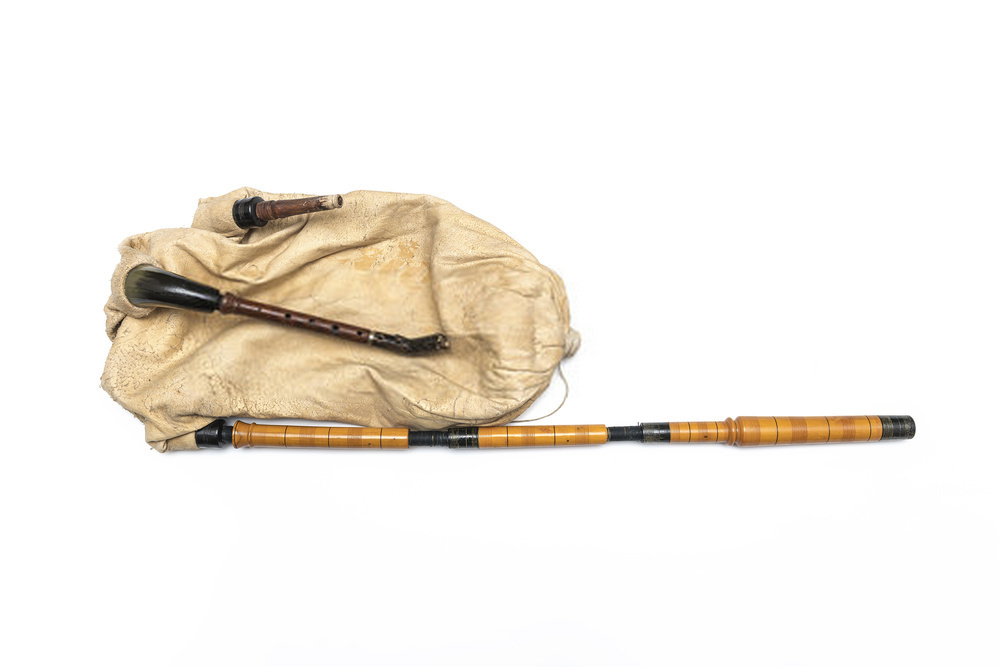 The Bagpipes are the national instrument of the country. It is also known as the Gaida in Bulgaria. Scotland, Ireland, and Bulgaria are three countries in the world that use bagpipes as national instruments. Although it is played throughout the Balkans.
The Bagpipes are the national instrument of the country. It is also known as the Gaida in Bulgaria. Scotland, Ireland, and Bulgaria are three countries in the world that use bagpipes as national instruments. Although it is played throughout the Balkans.
19. Fire dancing in Bulgaria
 A rite of fire dancing is one of the oldest Bulgarian flok traditions. This dance was practiced eons ago by the Thracians near the white sea. Today, this dance still exists and is performed in only a few mountain villages of the Strandzha region of Bulgaria.
A rite of fire dancing is one of the oldest Bulgarian flok traditions. This dance was practiced eons ago by the Thracians near the white sea. Today, this dance still exists and is performed in only a few mountain villages of the Strandzha region of Bulgaria.
Furthermore, this dance is also listed in UNESCO as a non-material culture.
Every year on June 3rd Bulgarian celebrates this festival every year.
20. Popular treasure found in Bulgaria
 The oldest golden treasure in the world was found in the west of the stunning Verna Bulgaria in the graveyard in 1972. The grave is over 6,000 years old and was found scattered among some 294 graves. 3,000 gold items were found. Similarly, different types of items made with gold as well as copper, stone, clay, and flint are found in graves.
The oldest golden treasure in the world was found in the west of the stunning Verna Bulgaria in the graveyard in 1972. The grave is over 6,000 years old and was found scattered among some 294 graves. 3,000 gold items were found. Similarly, different types of items made with gold as well as copper, stone, clay, and flint are found in graves.
These are now in the Archeological museum in Varna and are other country museums and even abroad.
Some of the other treasures found throughout the centuries in Bulgaria include The Panagyurishte Treasure (1849) of nine vessels made of pure gold, the Valchitran Treasure (1925) of 13 vessels, the Rogozen Treasure of 165 silver vessels (dating back to the 4th century BC) and the Thracian King mask made of Gold in 2004 in the valley of the Thracian Kings.
You can now see the Thracian King mask in the Archeological Museum in Sofia.
21. Popular Game of Bulgaria
Football (Soccer) is one of the popular games of Bulgaria. Other games like volleyball, table tennis, skitting are quite popular among the Bulgarian people. Similarly, the Bulgarian national volleyball team list in the top 10 and won the different championships.
22. The country has a negative population growth
The Bulgaria peoples are in a demographic crisis. Similarly, the country has had a negative population growth for more than two decades now. The country's birth rate is below every year. The majority of children in Bulgaria are born from unmarried mothers. In 2016, two-thirds of the births in Bulgaria were out of marriage.
23. Bulgarian people are high intelligent
Bulgarians are in 2nd position to have the high IQ as well as SAT score in the world. According to Mensa, the most clever woman is from Bulgarian and she is Daniela Simidchieve, who achieved an IQ score of 200.
24. A prominent person of Bulgaria
The prominent persons of Bulgaria are John Vincent Atanasoff (who invented the first electronic digital computer from 1939-1942), Peter Petro (the first digital wristwatch), Yordanka Donkova (female athlete), Stefka Kostadinova (female athlete), Hristo Stoichkov (Famous male footballer who become the first Bulgarian player to win the Ballon d'Or), Petar Stoychev (swimmer), Kaloyan Mahlyanov (Sumo Wrestler), and Dan Kolov ( First Wrestler).
25. The Capital city of Bulgaria
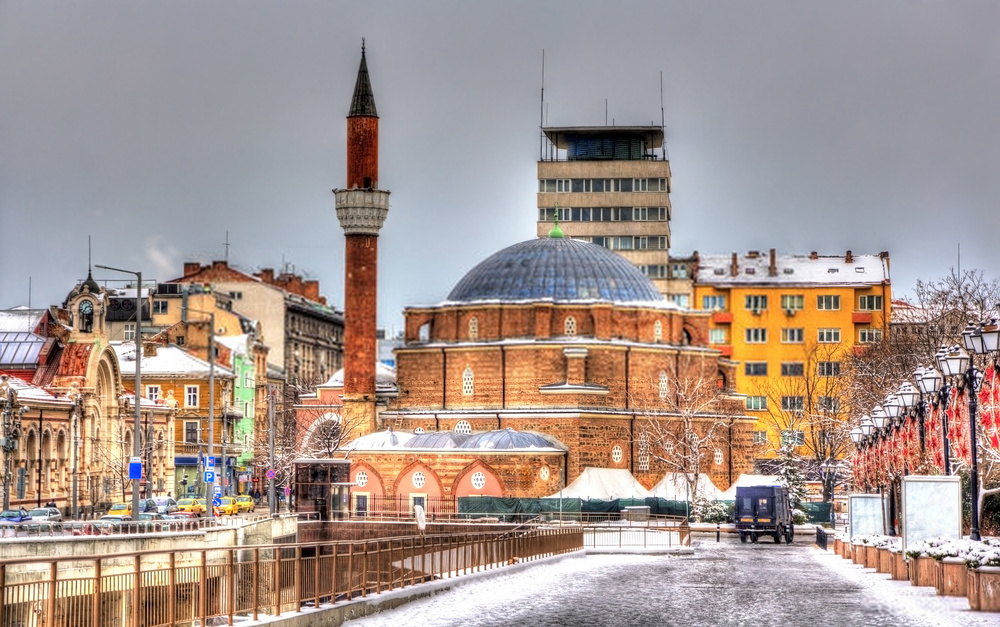 Sofia is the capital city of Bulgaria. Similarly, it is the country's largest city. Also, it is the nation's economic hub city and is home to more than one million people. Furthermore, Varna is the second-largest city and Plovdiv is the third-largest city in Bulgaria.
Sofia is the capital city of Bulgaria. Similarly, it is the country's largest city. Also, it is the nation's economic hub city and is home to more than one million people. Furthermore, Varna is the second-largest city and Plovdiv is the third-largest city in Bulgaria.
In Sofia, there are many beautiful parks, mineral springs, architectural monuments, 250 historical landmarks, restaurants, nightclubs, bars, and many more places of cultural interest.
Additionally, Sofia was founded approximately 7,000 years ago. This means it's the second oldest city in Europe. Sofia also lies at the foothills of a mountain creating one Spectacular viewpoint.
26. UNESCO World Heritage sites in Bulgaria

There are nine natural and historical objects in Bulgaria which has the list of UNESCO World Heritage sites as well as cultural traditions. Some of them are the Boyana Church, the Pirin National Park, Thracian tombs in Kazanlak and Sveshtari, the Rock-hewn Churches of Ivanovo, Thracian ritual fire-dance called Nestinarstvo, the Rila Monastery, the Sreburna Nature Reserve, and the ancient city of Nesebar.
27. Bulgarian roses are very much popular
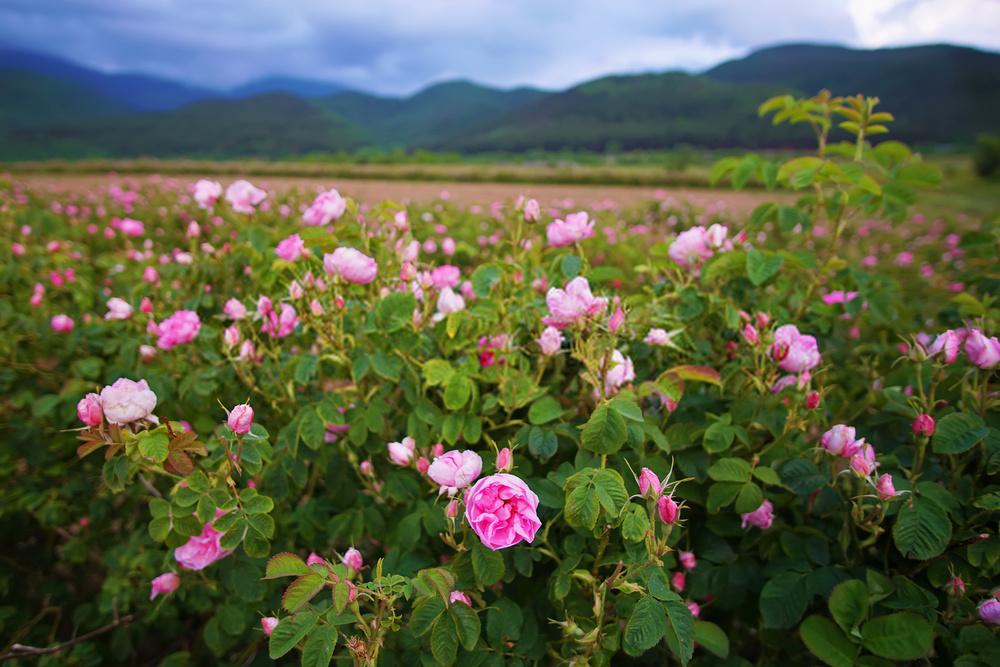 Bulgarian roses are very much beautiful and popular flowers. The Bulgarian roses are used for making rose water, rose oil, and perfumes. The country is one of the biggest producers of rose water, rose oil, and other derivatives products. On the south of the Balkan mountains, you'll find the rose valley. The area produces around 1.7 tonnes of the world's rose oil. In this place rose festival is also conduct and it is in the first week in June. A beauty pageant has also part of the festival and the winner can receive the title the queen of roses.
Bulgarian roses are very much beautiful and popular flowers. The Bulgarian roses are used for making rose water, rose oil, and perfumes. The country is one of the biggest producers of rose water, rose oil, and other derivatives products. On the south of the Balkan mountains, you'll find the rose valley. The area produces around 1.7 tonnes of the world's rose oil. In this place rose festival is also conduct and it is in the first week in June. A beauty pageant has also part of the festival and the winner can receive the title the queen of roses.
These are some interesting facts about Bulgaria.
Some more interesting facts about Bulgaria
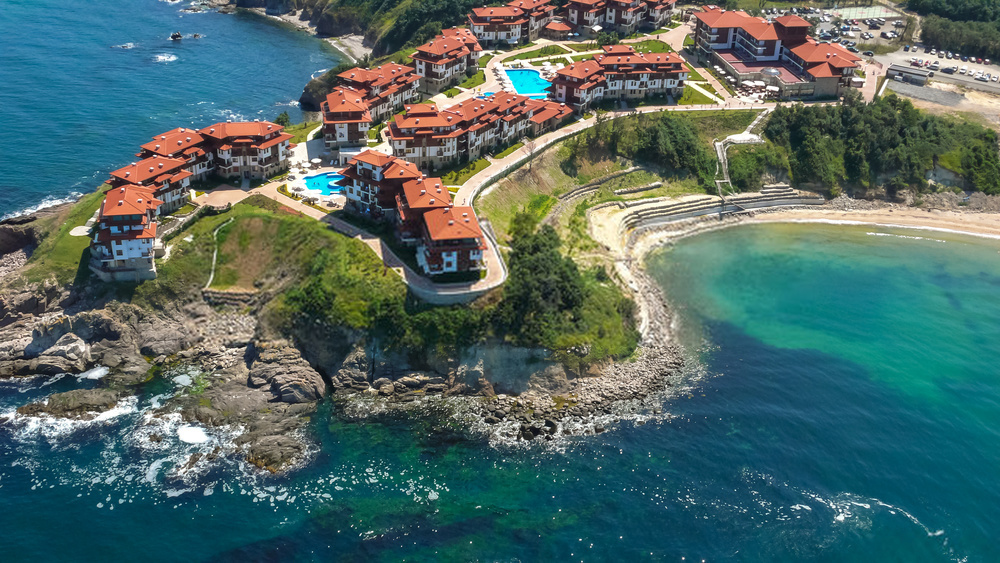
- Bulgaria is the home to the world's largest IMAX three-dimensional cinema.
- It is also known as the Silicon Valley of the Eastern Bloc.
- The Bulgarian Air Force developed the first air-dropped bomb during the first Balkan war.
- In Bulgaria, there have the highest number of births outside of Marriage in the EU and stand in second place with Slovenia among the European Union countries.
- The Bulgarian Air force pilot Rayna Kasabova was the first woman ever to participate in a military fight in the world.
- Electricity in Bulgaria is more expensive than in other western Europe.
- 70-80% of the world's rose oil is produced in Bulgaria. Rose oil is used for making popular and most expensive perfumes.
- The largest human DNA Helix was Replicated in Bulgaria by medical students did on a beach in Varna and they'd broken the Guinness World Records at the title for the largest human DNA helix.
These are some more interesting facts about Bulgaria.
In conclusion
In this article, we discuss some interesting facts about Bulgaria. After reading this article, you get some knowledge about the facts of Bulgaria. If you have any queries and want to add some more facts about Bulgaria which are not written in the above article then please comment us. We will always be ready to learn from you. If you love this article, then also comment to us. Have a great time.

















































